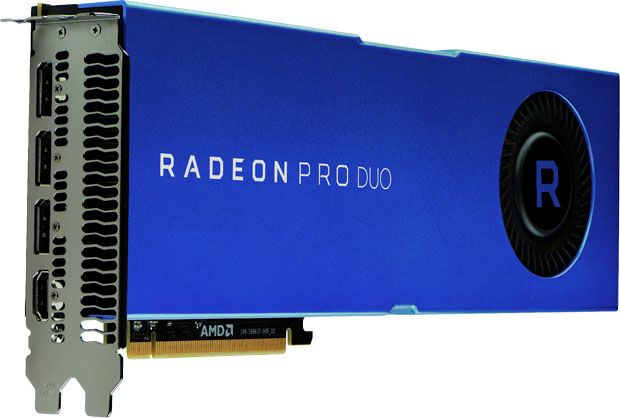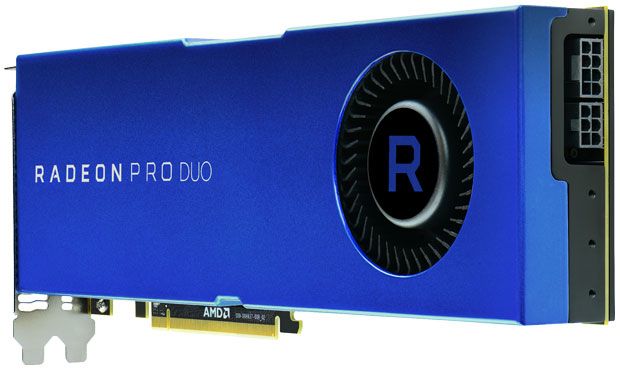
More or less one year ago, AMD intoduced the first Radeon Pro Duo based on two Fiji GPUs. Today, AMD has announced the new Radeon Pro Duo, based on two Polaris 20 GPUs. The Polaris 20 GPU is currently in use on the Radeon RX 580.
Today AMD (NASDAQ: AMD) announced the world’s first dual-GPU graphics card designed for professionals: the Polaris-architecture-based Radeon™ Pro Duo. Built on the capabilities of the Radeon™ Pro WX 7100, the Radeon Pro Duo professional graphics card is designed to excel at media and entertainment, broadcast, and design and manufacturing workflows, delivering outstanding performance and superior flexibility that today’s creative professionals demand.
The Radeon Pro Duo is equipped with 32GB of ultra-fast GDDR5 memory to handle larger data sets, more intricate 3D models, higher resolution videos, and complex assemblies with ease. Operating at a max power of 250W, the Radeon Pro Duo harnesses a total of 72 compute units (4608 stream processors) for a combined performance of up to 11.45 TFLOPS of single-precision compute performance on one board, and twice the geometry throughput of the Radeon™ Pro WX 7100.2 The Radeon Pro Duo enables professionals to work up to four 4K monitors at 60Hz, drive the latest 8K single monitor display at 30Hz using a single cable, or drive an 8K display at 60Hz using a dual cable solution.
Complete press release can be found HERE.


Main specifications of the new Radeon Pro Duo:
- GPU: 2 x Polaris 20 @ 1243MHz boost clock, process 14nm
- Stream processors: 4608 (2 x 2304)
- Memory: 32GB GDDR5 (2 x 16GB), 512-bit (2 x 256)
- Texture units: 288 (2 x 144)
- ROPs: 64 (2 x 32)
- FP32: 11.45 TFLOPS single-precision floating-point performance (GFLOPS table comparison)
- TDP: 250W
- Power connectors: 1 x 8-pin + 1 x 6-pin
Compared to previous Fiji based Pro Duo, this new Pro Duo offers less performance in FP32: 11.45 TFLOPS versus 16 TFLOPS for the Pro Duo Fiji. Less performance but a better power consumption: 250W versus 350W for the previous gen.
The new Radeon Pro Duo is will cost $999 and should be available in June 2017.